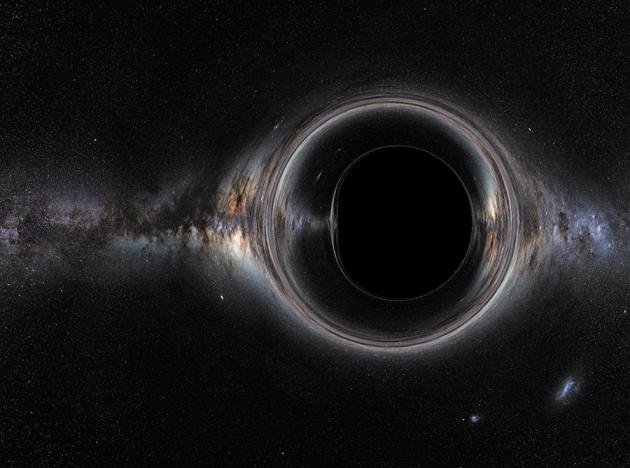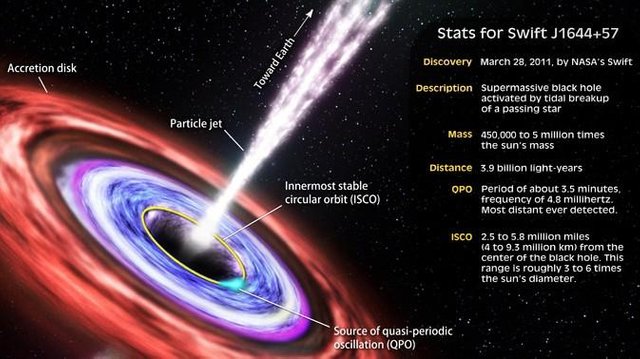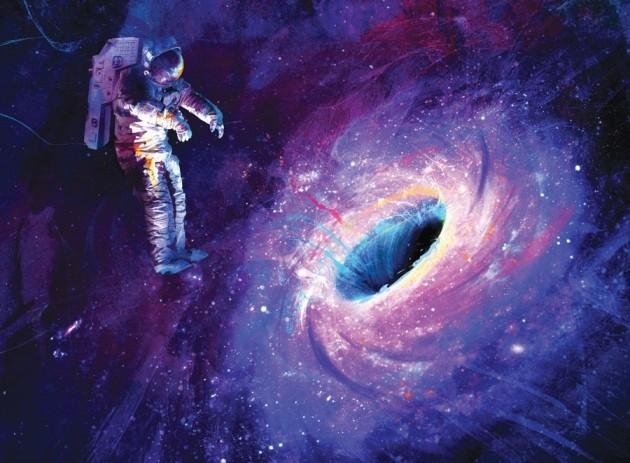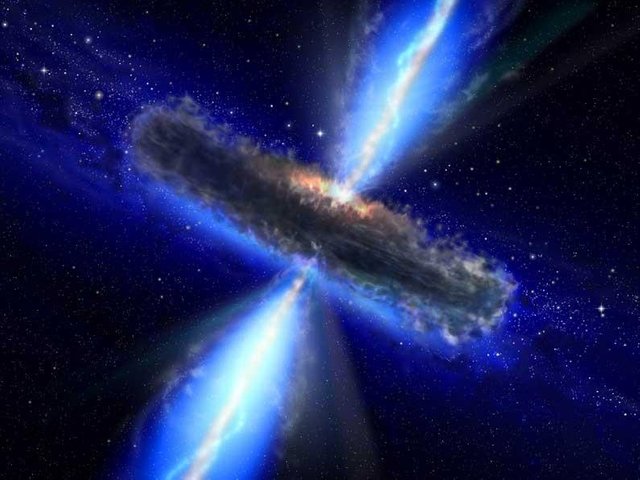Black hole information paradox
The black hole information paradox is a puzzle resulting from the combination of quantum mechanics and general relativity. Calculations suggest that physical information could permanently disappear in a black hole, allowing many physical states to devolve into the same state.

This is controversial because it violates a commonly assumed tenet of science—that in principle the value of a wave function of a physical system at one point in time should determine its value at any other.
A fundamental postulate of the Copenhagen interpretation of quantum mechanics is that complete information about a system is encoded in its wave function up to when the wave function collapses. The evolution of the wave function is determined by a unitary operator, and unitarity implies that information is conserved in the quantum sense.

There are two main principles in play:
-Quantum determinism means that given a present wave function, its future changes are uniquely determined by the evolution operator.
-Reversibility refers to the fact that the evolution operator has an inverse, meaning that the past wave functions are similarly unique.
The combination of the two means that information must always be preserved.
Starting in the mid-1970s, Stephen Hawking and Jacob Bekenstein put forward theoretical arguments based on general relativity and quantum field theory that not only appeared to be inconsistent with information conservation but were not accounting for the information loss and state no reason for it. Specifically, Hawking's calculations indicated that black hole evaporation via Hawking radiation does not preserve information. Today, many physicists believe that the holographic principle (specifically the AdS/CFT duality) demonstrates that Hawking's conclusion was incorrect, and that information is in fact preserved. In 2004 Hawking himself conceded a bet he had made, agreeing that black hole evaporation does in fact preserve information.

Solution:
Information is irretrievably lost
Advantage: Seems to be a direct consequence of relatively non-controversial calculation based on semiclassical gravity.
Disadvantage: Violates unitarity. (Banks, Susskind and Peskin argued that it also violates energy-momentum conservation or locality, but the argument does not seem to be correct for systems with a large number of degrees of freedom.)
Information gradually leaks out during the black-hole evaporation
Advantage: Intuitively appealing because it qualitatively resembles information recovery in a classical process of burning.
Disadvantage: Requires a large deviation from classical and semiclassical gravity (which do not allow information to leak out from the black hole) even for macroscopic black holes for which classical and semiclassical approximations are expected to be good approximations.
Information suddenly escapes out during the final stage of black-hole evaporation
Advantage: A significant deviation from classical and semiclassical gravity is needed only in the regime in which the effects of quantum gravity are expected to dominate.
Disadvantage: Just before the sudden escape of information, a very small black hole must be able to store an arbitrary amount of information, which violates the Bekenstein bound.
Information is stored in a Planck-sized
Advantage: No mechanism for information escape is needed.
Disadvantage: To contain the information from any evaporated black hole, the remnants would need to have an infinite number of internal states. It has been argued that it would be possible to produce an infinite amount of pairs of these remnants since they are small and indistinguishable from the perspective of the low-energy effective theory.
Information is stored in a large remnant
Advantage: The size of remnant increases with the size of the initial black hole, so there is no need for an infinite number of internal states.
Disadvantage: Hawking radiation must stop before the black hole reaches the Planck size, which requires a violation of semi-classical gravity at a macroscopic scale.
Information is stored in a baby universe that separates from our own universe.
Advantage: This scenario is predicted by the Einstein–Cartan theory of gravity which extends general relativity to matter with intrinsic angular momentum (spin). No violation of known general principles of physics is needed.
Disadvantage: It is difficult to test the Einstein–Cartan theory because its predictions are significantly different from general-relativistic ones only at extremely high densities.
Information is encoded in the correlations between future and past
Advantage: Semiclassical gravity is sufficient, i.e., the solution does not depend on details of (still not well understood) quantum gravity.
Disadvantage: Contradicts the intuitive view of nature as an entity that evolves with time


Please find more information here:
https://en.m.wikipedia.org/wiki/Black_hole_information_paradox
Congratulations @bestguy! You have completed some achievement on Steemit and have been rewarded with new badge(s) :
Click on any badge to view your own Board of Honor on SteemitBoard.
For more information about SteemitBoard, click here
If you no longer want to receive notifications, reply to this comment with the word
STOP